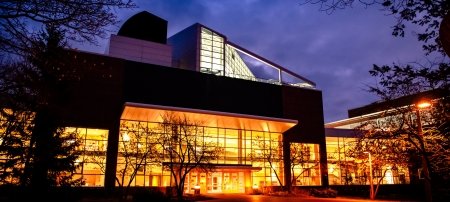Beyond job placement statistics and lifetime earnings, Michigan Tech graduates make their mark in the world in ways not calculated in dollars and cents.
Peace Corps Master's International (PCMI) alumnus Nick Schreiner '11 is an example of someone using his engineering skills to make an impact in some of the most troubled spots on the planet: fighting Ebola in Sierra Leone, supporting displaced populations in a Protection of Civilian (POC) zone in South Sudan, and working with refugee populations in Democratic Republic of the Congo (DRC) and Central African Republic (CAR).
Schreiner has worked for Doctors Without Borders (Médecins Sans Frontières—MSF) for more than three years after completing his master's degree in environmental engineering. While MSF is commonly considered a humanitarian group for doctors and nurses, a large portion of staff is non-medical, including water and sanitation engineers, electrical engineers, biomedical engineers, and communications professionals.
"I tried a more traditional engineering position at a Portland, Oregon-based firm after graduation," Schreiner says. "I found my former Peace Corps service in Mauritania and Mali had planted a seed calling me to do something more with my life."
He started working for MSF in fall 2012 as a water and sanitation engineering specialist in the DRC. He was there for 10 months. After this, MSF called him again to work for six weeks in CAR in a refugee camp set up beside the airport in the capital city Bangui. There, MSF staff saw 10-15 new wounded patients each day on top of managing the health concerns and disease outbreaks of a refugee camp. He and his team worked to increase access to clean water and install safe waste disposal systems.
In fall 2014 as the Ebola epidemic continued to spiral, Schreiner was asked to join a MSF team in Sierra Leone.
"This was a different kind of insecurity," he says. "You can't see Ebola. It is both everywhere and nowhere."
Everyone in the Sierra Leone treatment center where he worked was uneasy; they were required to implement a "no touch" policy. In addition to working in water and sanitation, he also managed biosafety to control infection, including special procedures for waste control and removal of the deceased.
"This really stretched me outside of my engineering training," he says. "However, I found engineering had prepared me to carefully navigate the necessary procedures and protocols in a new context.
"After returning home for a short break, Schreiner took another position in Sierra Leone, focusing on outreach to communities. Here his Peace Corps experience was invaluable in understanding the everyday complexities of life in West Africa.
"Our protocols to stop the spread of Ebola were tough and contradicted natural tendencies to care for the sick, including isolating and moving them to treatment centers," he says. "Sometimes sick people would be taken to these centers, die, and immediately be buried to prevent the spread of the disease. This was extremely hard for families.

"Most recently, Nick has worked in South Sudan, where he returned to a wartime context. Specifically, he was assigned to a United Nations POC zone. In April 2015 new fighting in the region swelled the POC population to 130,000, bringing abysmal water and sanitation conditions.
"With a shortage of latrines, water contamination increased and a Hepatitis E outbreak hit the population in the POC zone," Schreiner says. "You're often tackling the challenge of clean water and sanitation in precarious environments.
"The work is fast paced and exciting—from flying around mountains in a small aircraft to racing across a lake to address a health emergency—but he is not in it for the adrenaline rush.
"This work can take a toll on you, but it's the national staff that keep me going. They are incredible to work with and have a long-term commitment and impact through their work," he explains. "You see the best and the worst of what humans are capable of, but it is a way of showing solidarity and bearing witness—témoinage—to share with the world the human suffering they see, a foundational aspect of MSF's work around the world.
Michigan Technological University is an R1 public research university founded in 1885 in Houghton, and is home to nearly 7,500 students from more than 60 countries around the world. Consistently ranked among the best universities in the country for return on investment, Michigan's flagship technological university offers more than 120 undergraduate and graduate degree programs in science and technology, engineering, computing, forestry, business, health professions, humanities, mathematics, social sciences, and the arts. The rural campus is situated just miles from Lake Superior in Michigan's Upper Peninsula, offering year-round opportunities for outdoor adventure.







